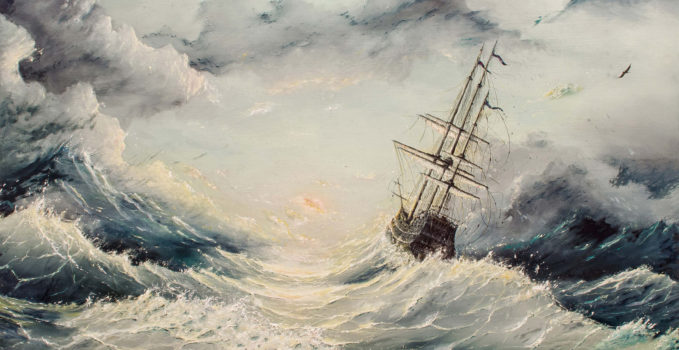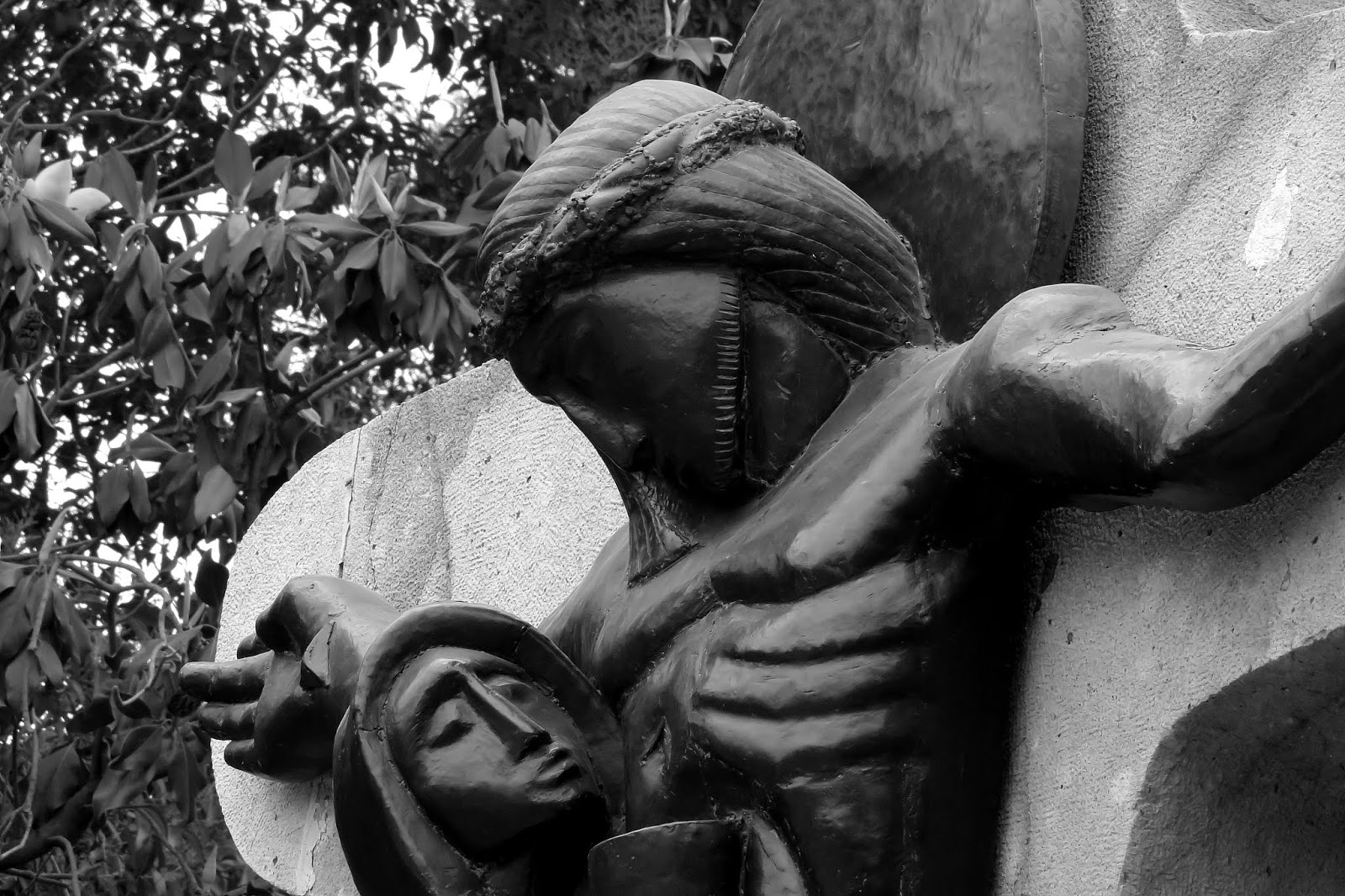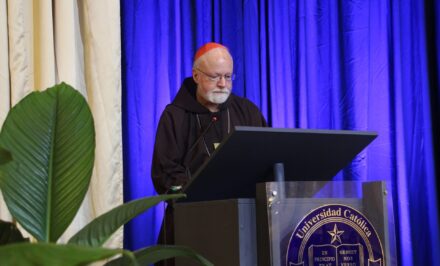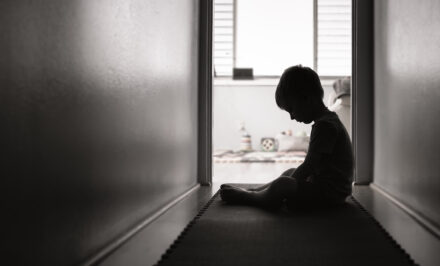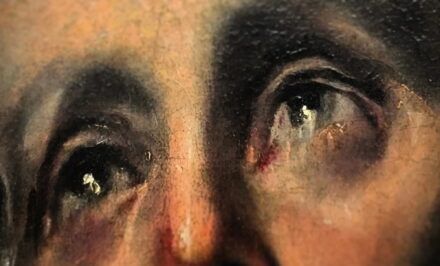CHILE, Fr. Juan Pablo Rovegno, Director of the Schoenstatt Movement in Chile •
“It was a very necessary and purifying Family moment,” commented Fr. Juan Pablo Rovegno, National Director of the Schoenstatt Movement in Chile. This was in regard to the Mass celebrated on October 18, 2018, in Bellavista. The occasion was the anniversary of the Covenant of Love and the closing of the “Father Kentenich Year” in the Metropolitan Region, and it became an encounter for uniting as family to “heal and restore, to offer, and to purify.”—
“We gather on this founding day with the hope of renewing ourselves in the founding faith. We do it in a very difficult and complex context: the drama of the abuses, the pain of the victims, the wound to our faith, the disillusionment, the rage and the nuisance facing the late and erratic management. Our feelings are so many and varied that we need to empty them into the earthenware vessel (jar) of the Treasury of Grace so that they may be transformed into hope, into reparation,” commented Fr. Juan Pablo Rovegno in his homily.
“In the Shrine, we need to deposit all we have experienced because they are faces, people, children and youths, families; it is we ourselves who need to heal and restore, offer and purify. The mere gesture of having placed ourselves on the way towards Bellavista is an expression of a need to reencounter, to find words of encouragement, to reflect together on the hard reality of our miseries.”
In the penitential rite, some young people sprinkled the priests with holy water. It was a strong and powerful gesture.
“I want to thank our dear Blessed Mother for this Pentecost experienced last night in Bellavista. The inner ties were loosed, conviction and the hope that we have the God of life with us emerged,” said Jorge Westpahl.
“In Fr. Juan Pablo Rovegno and the great assembly, the atmosphere of happiness, fraternity, and the joy of having our Father had the catalyst to experience ourselves as family in which the greatness of our Father’s charism needs from all of us…united around our Mother in Bellavista’s sacred land.
So that they may be fertile land, our strengths and weaknesses, our pains and joys –– are supported by our web of natural and supernatural attachments. Thus last night, we experienced it between our Shrine and ourselves. It is also necessary to grow and develop, search, and experience our double creative tension between two fundamental realities: our federalism and our familiarity. Both are needed and complemented in the plan of love of the good Father God.”
HERE WE PUBLISH THE COMPLETE TEXT OF THE HOMILY
Homily, Fr. Juan Pablo Rovegno M., 10 – 18 – 2018 (pdf)
October 18, 2018
Cenacle Shrine of Bellavista
HOMILY FOR THE EUCHARISTIC CELEBRATION FOR THE ANNIVERSARY OF THE COVENANT OF LOVE AND THE CLOSING OF THE “YEAR OF THE Father” IN THE METROPOLITAN REGION
Dear Family,
We gather on this founding day with the hope of renewing ourselves in the founding faith. We do it in a very difficult and complex context: the drama of the abuses, the pain of the victims, the wound in our faith, the disillusionment, the rage, and the nuisance facing the late and erratic management. Our feelings are so many and so varied that we need to empty them into the earthenware vessel (jar) of the Treasury of Grace so that they may be transformed into hope, into reparation.
In the Shrine, we need to deposit all we have experienced because they are faces, persons, children and youth, families, it is we ourselves who need to heal and restore, offer and purify. The mere gesture of having placed ourselves on the way towards Bellavista is an expression of a need to reencounter, to find words of encouragement, to reflect together on the hard reality of our miseries.
I invite you to travel this road under the perspective of a triple necessity:
- The need to travel the road together: the image of the boat inspires us again. It is about an even more terrible moment than that of the calm in the storm that has been accompanying us in our conferences and reflections. In the Acts of the Apostles, an extreme situation is narrated: each one tries to save himself, some want to flee, others remain, chaos and fear have taken hold of each one of the characters. Paul summons them to eat; they have not tasted anything for so many days. He perceives the need, but he offers them something more than bread. He offers them the consecrated bread. In that gesture of the breaking of the bread, all eat; then all are saved. The boat runs aground, the stern is destroyed, the prow is unmovable, but all are saved.
Today we have come as Family: what was an opportune decision to transfer the end of the Year of the Father as Metropolitan Family to this founding day, has transformed into a necessity: the need to go through this crisis together, the need to verbalize and to offer what we feel, the need to seek answers, of finding a meaning and encouraging ourselves. Because the temptation to flee is great, the desire for each person to go on his/her own to the other shore is understandable; wanting to reprimand responsibilities is legitimate. Therefore we need to believe that God and the Blessed Mother again tell us through the mouth of our Father and from this Holy Land: “We go one in another, with the other, for the other,” not in spite of the other or against the other. Together we go towards the other shore.
We go together. We close the Year of the Father with a renewed awareness of the present condition of his person, charism, and mission, but also with a renewed humility: none of us has the complete answer, no one can take ownership of the prophet’s mantle, nobody will reach the “re-foundation” alone. Only together will we be able to assume and live with hope the challenges of the times.
We go together. Let us not forget that the Covenant has a fraternal dimension that it does not mean that we be good friends or comrades, it means we want to be and to feel as one Family. We want to learn to trust one another; we want to learn to think, pray, discern, and decide together. We want to learn to work together.
An expression from “We go together,” are the multiple initiatives expressed in the letter of a group important to our Youths, of Family Federation courses, from the Institute of Families, from the forgers, from chat groups, talk groups and groups of reflection. The challenge is to acknowledge that nobody has “the answer” to the present challenge, but that we all participate from a part of the challenge and from a part of the answer. To conquer the temptation of the leading role of the pendulum, of sterile defense, of shortsightedness facing the reality confronted, is a more than present challenge. We go together to the other shore.
Nevertheless, to again see ourselves with confidence, we need to acknowledge with humility, what led us to this critical point? From there emerges a second need.
- The need to acknowledge our miseries: In the Gospel of the Good Samaritan, St. Luke places us before the central message of Jesus: love for one’s neighbor, especially to the injured neighbor. But to underline the radicalness of the neighbor, the other’s value, the dignity and greatness of the other, especially the injured neighbor, he places us on the scene of indifference, arrogance, the inability for becoming aware, and being overly centered on ourselves: all attitudes which make us follow along.
At that time, it was about the observance of the law and of the primacy of forms. Today it is about institutional care, of relativism, of the demands of the Gospel, of the inexcusable ignorance before human disorder which harms the weak, of the badly understood prudence which seen in the light of proper personal interest – communitarian or institutional – avoids the suffering, the wounded, the abused, truth and justice (because we speak of crimes and not only of sins, of irreparable damages and not only of inadequate comportments).
Dear Family, the need to go through this crisis together supposes the need to acknowledge our miseries. We, as community of Schoenstatt Fathers in the first place and as priestly column, not only have we not been at the height of the circumstances, but we have wounded the injured neighbor, and also we have wounded you. We have wounded you through the abuses, but we have also wounded you because often we followed along.
And that wounded neighbor has a face, has a family, has a dignity that we did not know how to take care of, protect, embrace, and heal.
Pardon, dear Family, pardon. It hurts us and we are ashamed. However, it especially hurts when we assume the awareness of those abused people’s tragedy, and those abused that have been ignored, the tragedy and pain of these broken lives.
Pardon for our brothers who have abused, also pardon because often our management has been late, not very lucid, and reactive.
Dear community brothers, this pardon has to hurt us because we have not known how to respond to a triple imperative.
To the imperative of the priesthood of Christ to embrace the suffering, the small, the weak, of renouncing whatever sign of indifference, of power or pretension of dominance. The imperative of making of the Gospel and of life itself a mutual complement.
It also has to hurt us because we have not known how to respond to the imperative of the priesthood of our Father: paternity, like the unselfish service to the life of another, like a healthy exercise of authority, like a gift which guides a trusting life, in liberty and respect towards the God of life and of full autonomy.
Finally, it has to hurt us because we have not known how to respond to the imperative of our May 31st mission: that capacity, that challenge, that intuition of uniting nature and grace. The value of the secondary cause, but also of the reality before our fragile humanity, acknowledging the need to assume and to heal the disorders of our nature, like the capacity to embrace the wounds which that disordered nature provokes. “What is not assumed is not redeemed,” “grace supposes nature,” we have heard it and repeated so many times, and here we did not know how to recognize the disorder and take charge of its limits, nor did we know how to recognize the wounds which this disorder produced, to embrace them, heal them, and give them dignity.
Of course, the life we have embraced is much more, served and paternally guided, since Christ and in harmony, nevertheless, today we want to take charge of the situations and people in which that has not been given.
This acknowledgement of our miseries leads us to a third necessity:
- The need to again place our glance in the glance and the heart of the Blessed Mother, and the need to again take the hand of our Father and Founder.
This crisis has placed us on the horizon of a re-foundation, but a re-foundation that stems with the confrontation of our charism— not in a triumphant gesture nor less arrogant feeling we have all the answers.
Schoenstatt, like our Church and because we are Church, experiences this crisis as an urgent calling to return to what is essential, rooted in Christ and in Mary, to our Covenant of Love with all its consequences in concrete life, to the principles of our origin. Therefore it is not accidental that this Mass of reparation is celebrated on the 18th of October, nor is it accidental that in this way we close the Year of the Father.
We need to acknowledge the presence of Mary in the Shrine, return to the novelty and radicalness of our Covenant of Love, return to personal and community work, return to missionary audacity at the front that we get to experience, return to responding to the challenges of the times and not with remedies, made up phrases or outlines, but with the discernment of the God of Life and of History.
We mutually need each other to deepen and develop our personal and community vocations to discern the signs of the times, to love and to serve the Church in this crisis context of deep helplessness and a need for renewal.
On January 18th, they stole the Mission Crown at the moment in which Pope Francis was leaving. None of us could have imagined all that would happen afterward and continues happening. God is leading us “with lion claws” because he wants a Church and a Schoenstatt renewed by a purification sieve.
104 years ago, a group of youths with the Blessed Mother exchanged great desires and the smallness of the instruments in that first Covenant of Love in the Shrine. This summer, another group of youth (Mary’s Crusade) before the helplessness of the Blessed Mother without a crown, offered her anew great desires and their smallness.
Today we want to offer that simple crown, a simple crown of wood and tin made along the way before the urgency of the moment. We arrived with all our helplessness to place our confidence anew in the heart of the Blessed Mother and to allow ourselves anew to be formed and guided by our Father and Founder to be witnesses and bearers of Mercy, that Mercy which today we pray to experience. Amen
Fr. Juan Pablo Rovegno M.
National Director of the Schoenstatt Movement in Chile
Biblical Readings
First Reading from the Acts of the Apostles 27:27–44
Psalm 129
Gospel: Luke 10:25–37
Original: Spanish, October 19, 2018. Translation: Carlos Cantú, Austin, Texas USA. Edited: Melissa Peña-Janknegt, Elgin, TX USA


